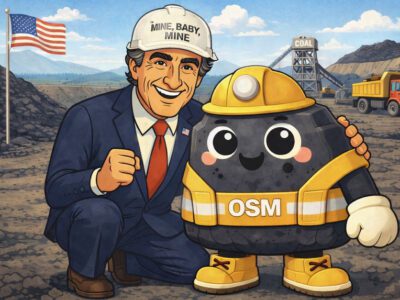Could Obama have wrung China climate concessions from Hu in Italy? We’ll never know
Jonathan’s recent post about the intersection of religion and environmentalism failed to foreshadow the most important way in which religion may have impacted environmental policymaking this week: by scuttling key climate talks associated with the G8 meeting in Italy. As reported here, the meeting succeeded in securing a pledge from G8 nations to reduce their GHG emissions by 80% by 2050 (this was the first time the U.S. had made this commitment on an international stage) and to seek to limit warming to 2 degrees C. But many had hoped that meetings between President Obama and China’s Hu Jintao would provide a breakthrough on the countries’ climate negotiating positions, too. That was not to be. Here’s the Wall St Journal account (subscription req’d):
Chinese President Hu Jintao’s sudden departure from the meeting early Wednesday further complicates negotiations, dealing a potentially significant blow to the summit’s ability to produce concrete results on issues from climate change to economic recovery. . . . Mr. Hu departed to deal with rioting in China’s western Xinjiang territory before he could meet privately with U.S. President Barack Obama or attend critical meetings of the G-8 plus 5, which includes China and four other developing economies.
Mr. Hu also was scheduled to attend the larger 17-nation Major Economies Forum on Thursday, chaired by Mr. Obama, and charged with reaching an accord on climate-change issues. Mr. Obama had hoped for a breakthrough in his debut on the stage of the international climate debate, but Mr. Hu’s absence makes a last-minute push by Mr. Obama for a broad accord on emissions reductions impossible, U.S. officials here say.
The rioting drawing Mr. Hu home is an eruption of an ongoing ethnic and religious conflict between China’s Islamic Uighur minority and its Han majority. (Here’s the AP story giving more detail.) Many predict that climate change pressures will make ethnic and religious tensions more fierce by enhancing struggles for natural resources; it appears that those tensions will also hinder cooperative solutions to the climate change problem.
Reader Comments
3 Replies to “Could Obama have wrung China climate concessions from Hu in Italy? We’ll never know”
Comments are closed.







While we do not know for certain, it appears that Chinese President Hu Jintao may have a better educational background and personal understanding of science and mathmatics than our U.S. President.
Most Chinese scientists know that it is not scientifically or technically feasible to control atmospheric temperature by regulating carbon dioxide emissions, and this may be why President Hu decided to leave early.
jim thanks for the incoherent, psudo-scientifically double-talk, and finally for the little dig that may CHina’s Hu’s knowledge is so superior to President Obama’s that he didn’t think it worth waiting until the end of the conference. Not sure “Chinese scientists would every want you as their spokesperson, but that was funny tool.
Hu’s departure was a blow to the process. Most things are worked out before the meeting ever takes place, and the rest of the chinses team remained, but without china all countries to could meet the most strict targets never even dreamed of and it wouldn’t make a difference. china, as we as a few others, has the power to push carbon in the atmosphere from 350ppm to over 400ppm in the next few decades. And once that happens runaway processes start their one way path to a severely inhospitable planet.
Dear Vala,
Leading scientists and experts from both China and India oppose the various cap & trade regulatory schemes, and they are skeptical that such efforts would have any measurable impact on modulating global atmospheric temperature.
There are far more serious threats to human health and safety than possible carbon dioxide levels of 400 ppm. Examples include unsafe drinking water, unsanitary living conditions, contaminated food, and communicable diseases.
We should focus our good intentions and intellectual energy on real environmental problems that humans have some control over, and not waste our time and precious resources on speculative catastrophic assumptions that may never materialize.